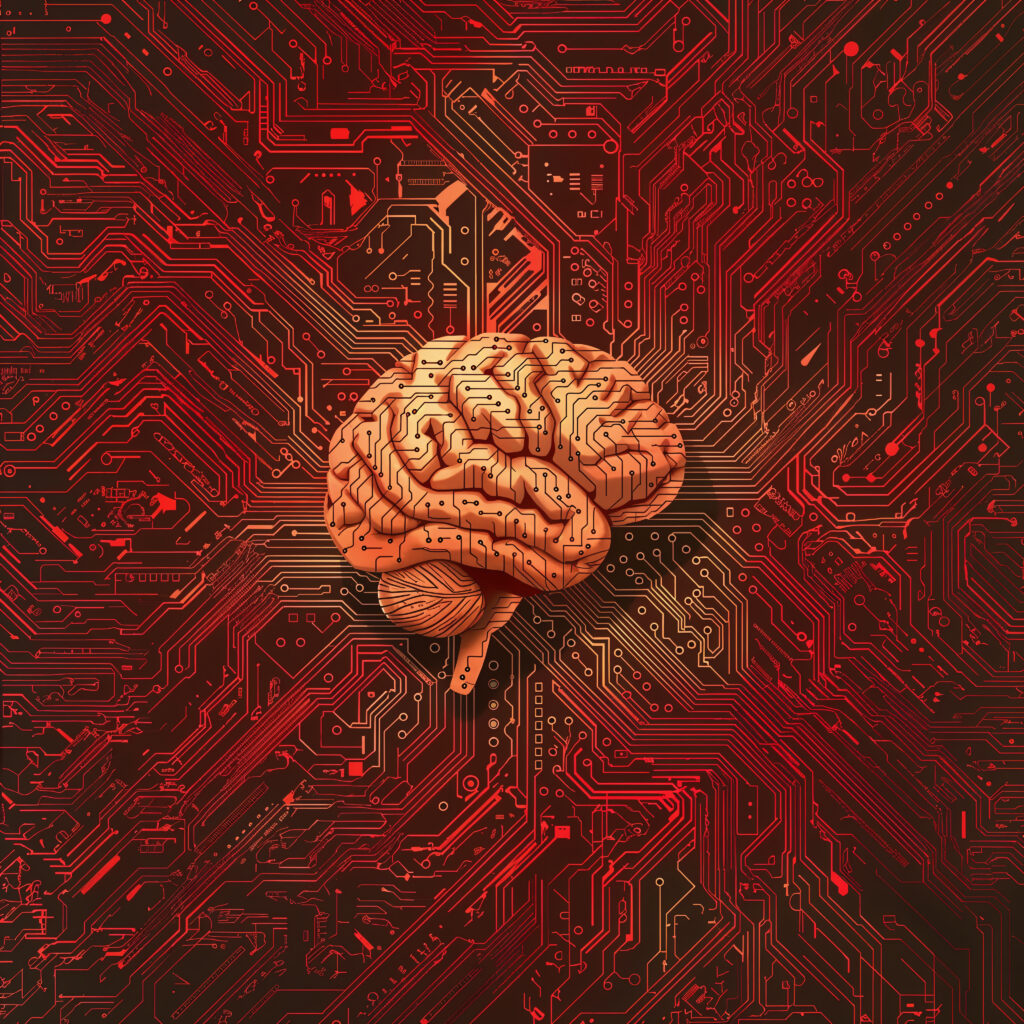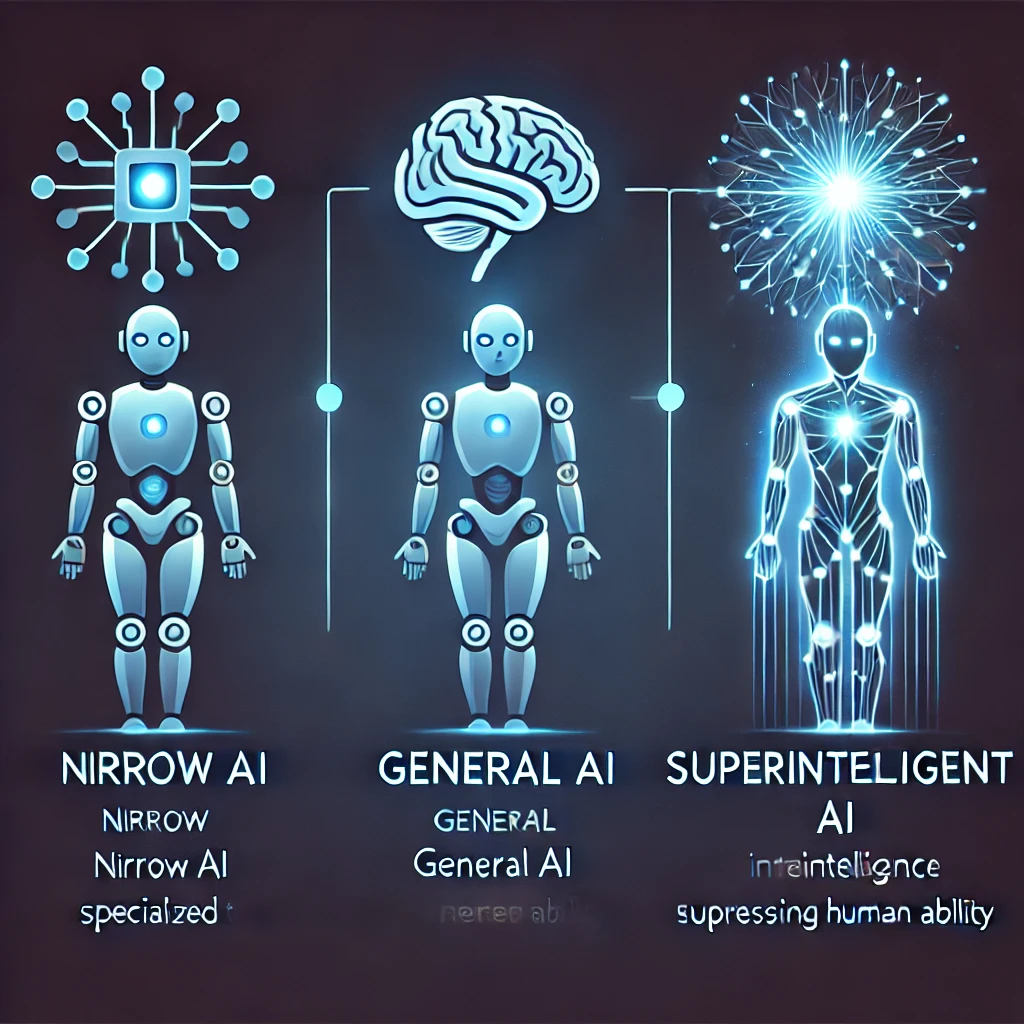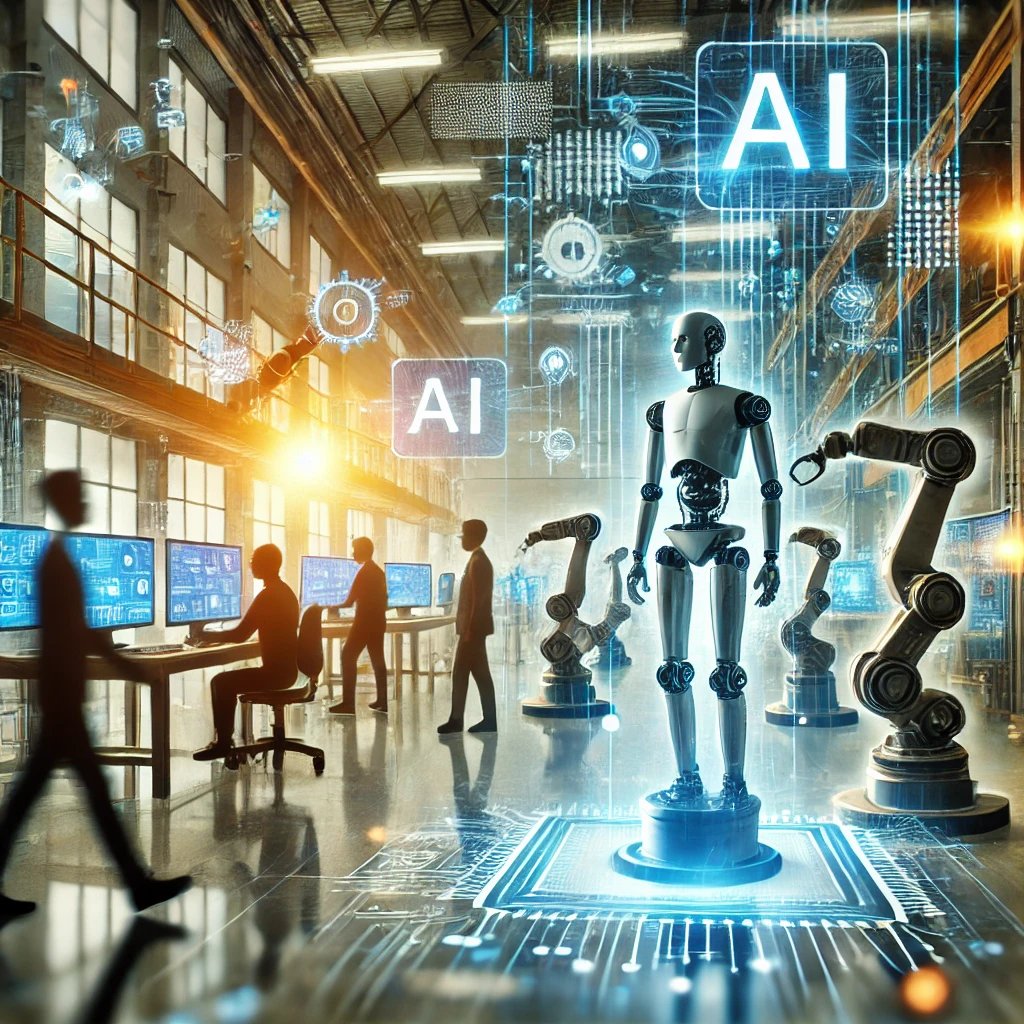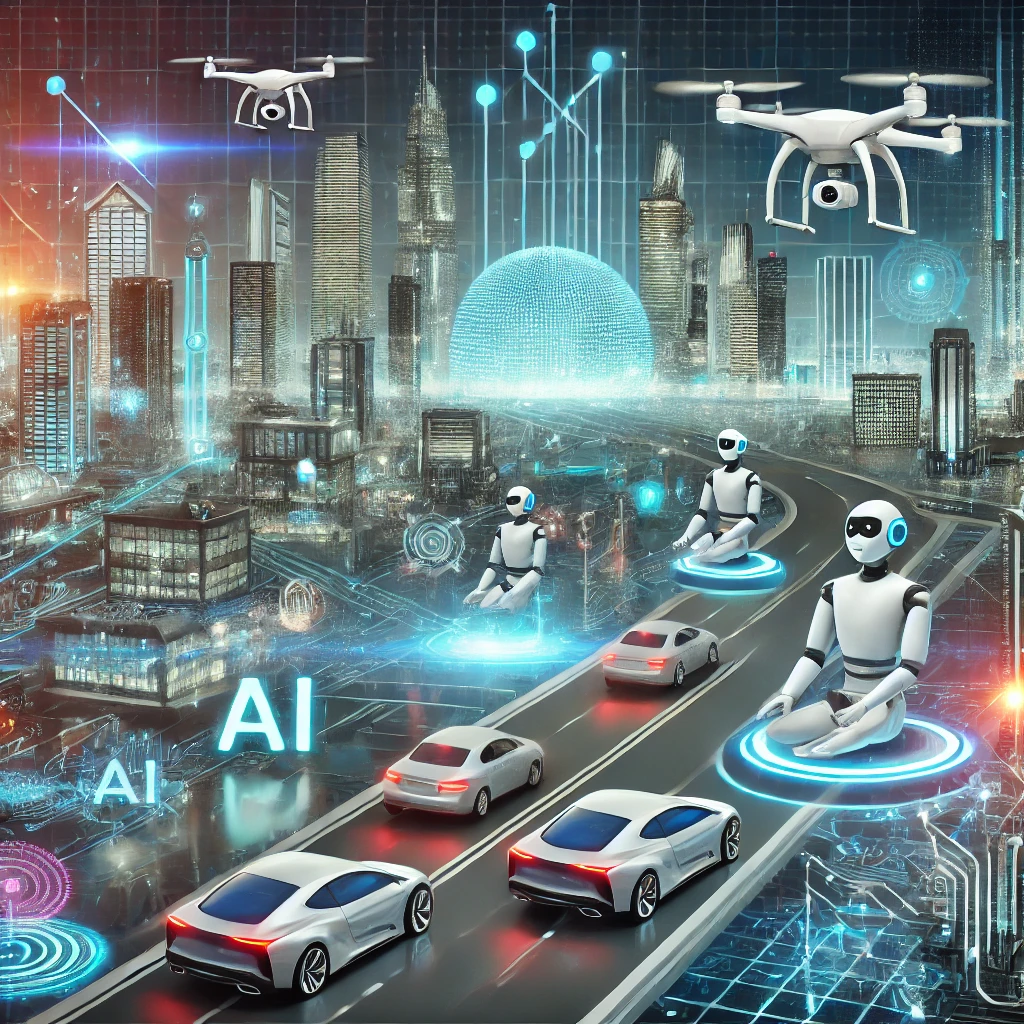
Artificial Intelligence (AI) has become one of the most transformative and game-changing technologies of the 21st century. Its impact can be seen in almost every industry, from healthcare to finance and from entertainment to education. But what exactly is AI, and how is it transforming the way we live, work, and interact with the world around us?
What is AI?
Artificial intelligence refers to the development of machines that are able to perform tasks that usually require human intelligence, such as learning, reasoning, problem solving, and decision making. These machines can analyze data, recognize patterns, make decisions, and even improve their performance over time without human intervention. AI is a broad field, covering areas such as machine learning, natural language processing, robotics, and computer vision.
Types of AI
There are different levels and types of AI, each of which serves different purposes:

- Narrow AI (Weak AI): This is the most prevalent form of AI that we interact with on a daily basis. Narrow AI is designed to perform specific tasks, such as facial recognition, voice assistants like Siri or Alexa, or even the recommendation systems used by Netflix or Amazon. Although it can perform its task exceptionally well, it lacks general intelligence and cannot perform tasks outside of its specified task.
- General AI (Strong AI): General AI is still theoretical and refers to machines that have the ability to understand, learn, and apply knowledge across a wide range of tasks, similar to human cognitive abilities. It is a type of AI that can think, reason, and problem-solve like a human.
- Super Intelligent AI: This is a theoretical form of AI that will surpass human intelligence in all areas, including creativity, problem-solving, and emotional understanding. Although it remains speculative, discussions about super intelligent AI raise important ethical and existential questions about the future of humanity.
AI in everyday life
AI is seamlessly integrated into various aspects of our daily lives, often working behind the scenes without us even realizing it:
- Smart Assistants: Virtual assistants like Google Assistant, Siri and Alexa help us manage tasks, set reminders, control smart devices and provide information with just a voice command.
- Personalized recommendations: AI algorithms power the recommendation engines on platforms like YouTube, Netflix and Spotify, delivering content based on our preferences and behavior.
- Autonomous vehicles: Self-driving cars powered by AI are revolutionizing the transportation industry, promising to make roads safer and reduce traffic congestion.
- Healthcare: AI is transforming healthcare by helping diagnose diseases, predict patient outcomes and develop personalized treatment plans. Machine learning models analyze medical data to detect patterns that humans may overlook, leading to better, more efficient care.
- Customer service: AI-powered chatbots are becoming an essential tool for businesses to interact with customers, provide 24/7 support, and quickly resolve inquiries.
AI in business and industry
AI is not only changing our personal lives but also reshaping entire industries:

- Manufacturing: AI-powered automation is streamlining production lines, improving efficiency and reducing human error. Robots and AI systems can perform tasks such as quality control, inventory management, and predictive maintenance.
- Finance: AI plays a vital role in detecting fraudulent activities, optimizing algorithmic trading strategies, and enhancing customer service through automated support systems. Machine learning models analyze transaction patterns to identify potential fraud, while AI-powered trading systems execute high-frequency trades faster than humans.
- Retail: Retailers are using AI to improve the customer experience, forecast demand, optimize pricing, and manage inventory. AI-powered chatbots can handle customer inquiries, while recommendation engines provide personalized shopping experiences.
- Agriculture: AI technology helps farmers optimize crop yields by analyzing weather patterns, soil conditions, and pest threats. Autonomous machines can plant, monitor, and harvest crops, improving efficiency and sustainability.
Ethical challenges of AI
As AI continues to develop, it raises important ethical and societal concerns:
- Job displacement: AI-driven automation has the potential to replace jobs, especially in industries like manufacturing, logistics, and customer service. While new jobs may be created, there is still a need for reskilling and workforce adaptation.
- Bias and discrimination: If AI systems are trained on biased data, they can maintain or exacerbate biases. This can result in biased decisions in critical areas such as hiring, law enforcement, and lending.
- Privacy: AI systems typically rely on vast amounts of data to operate effectively, raising concerns about how personal information is collected, stored, and used.
- Accountability: As AI systems make more decisions independently, it becomes difficult to determine who is responsible when things go wrong. Who is accountable for AI-driven actions, especially when they cause harm or error?
The Future of AI

The future of AI is full of immense possibilities. Advances in deep learning, quantum computing, and natural language processing are likely to lead to even greater breakthroughs in AI’s capabilities. AI will continue to be a central part in solving global challenges, including climate change, public health, and energy sustainability.
However, as we move towards an AI-dominated future, it is essential that we approach its development carefully. To ensure that AI serves humanity’s best interests, ethical considerations, transparency, and regulation must be at the forefront.
Conclusion
AI is no longer a futuristic concept; it is a powerful technology shaping the present and the future. From improving healthcare and advancing automation to revolutionizing our daily lives, AI is having a profound impact. However, as we continue to push the boundaries of AI’s capabilities, it’s important to address the ethical challenges that come with it. By doing so, we can ensure that AI continues to be a force for good in a rapidly evolving world.



Pingback: The Dawn of Quantum Computing: Transforming the Future of Technology